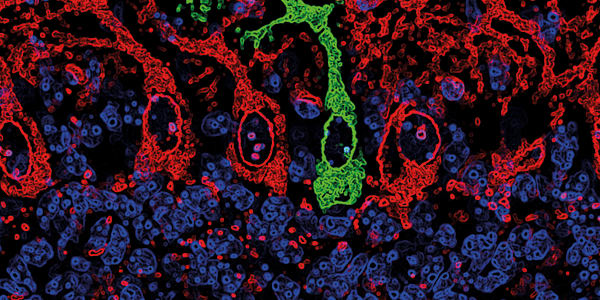Accurately diagnosing Parkinson’s disease (PD), especially early-stage or presymptomatic disease, isn’t easy. No validated diagnostic test exists, and instead, clinicians must rely mainly on physical symptoms and neurological examination. But recently, a small study demonstrated the skills of a woman who diagnosed PD with 92 percent accuracy, without observing any of the study subjects. How? Surprisingly, she simply followed her nose…
Joy Milne, from Perth, UK, first noticed a difference in smell six years before her husband was diagnosed with PD at age 45. “His smell changed and it seemed difficult to describe. It wasn’t all of a sudden. It was very subtle – a musky smell,” she says (1). After joining a UK charity and meeting more people with PD, Joy linked the scent she was detecting to the disease, and mentioned this to Tilo Kunath, a Parkinson’s UK senior research fellow. “I was giving a public outreach seminar on my stem cell work during Parkinson’s Awareness Week,” says Kunath, “and during question time, Joy Milne asked me if people with Parkinson’s smell different. It was completely unrelated to what I just spoke about, and I didn’t take the question seriously. Later, a colleague convinced me I should find her and test her. I didn’t know her name at the time, but I eventually tracked her down.” Kunath and his colleagues decided to see if Joy really could sniff out Parkinson’s. She was given the t-shirts of 14 subjects (eight with PD, and six controls) to test, and she identified the shirts belonging to PD patients with 92 percent accuracy – an incredibly accurate result, says Kunath. A key finding was also the source of the scent, adds Kunath. Originally, the researchers suspected that the odor was found in sweat, but the smell Joy was identifying was found on the collars of the shirts – indicating the metabolites she is detecting are likely coming from the sebaceous glands. About eight months after the study, the researchers got the biggest surprise of all: “The one mistake Joy made was to identify a control volunteer as having the ‘PD odor’. However, this individual went on to be diagnosed with PD,” recalls Kunath, “so her accuracy was even better than we thought!” But what does this mean for diagnostics? The charity Parkinson’s UK is now funding studies in Manchester, Edinburgh and London to further investigate the source of the smell Joy is detecting, with the hope of developing a simple, non-invasive test for early PD detection. “Preliminary gas phase and liquid phase chromatography mass spectrometry were used to analyze a small number of samples. But, the sample size is too small to conclude anything. The grant recently awarded by Parkinson’s UK will allow collection and analysis of 100 PD samples and 100 control samples for a statistically significant analysis, in order to identify the metabolic signature of the odor,” says Kunath.
References
- BBC News, “The woman who can smell Parkinson’s disease”, (2015). Available from: http://bbc.in/1LNOfWm. Accessed November 3, 2015.




